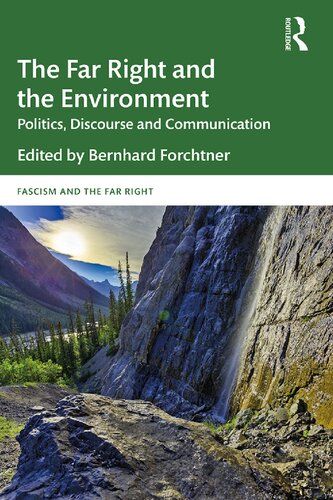

Most ebook files are in PDF format, so you can easily read them using various software such as Foxit Reader or directly on the Google Chrome browser.
Some ebook files are released by publishers in other formats such as .awz, .mobi, .epub, .fb2, etc. You may need to install specific software to read these formats on mobile/PC, such as Calibre.
Please read the tutorial at this link. https://ebooknice.com/page/post?id=faq
We offer FREE conversion to the popular formats you request; however, this may take some time. Therefore, right after payment, please email us, and we will try to provide the service as quickly as possible.
For some exceptional file formats or broken links (if any), please refrain from opening any disputes. Instead, email us first, and we will try to assist within a maximum of 6 hours.
EbookNice Team

Status:
Available0.0
0 reviewsAt the beginning of the twenty-first century, both the crisis of liberal democracy, as visible in, for example, the rise of far-right actors in Europe and the United States, and environmental crises, from declining biodiversity to climate change, are increasingly in the public spotlight. Whilst both areas have been analysed extensively on their own, The Far Right and the Environment: Politics, Discourse and Communication provides much needed insights into their intersection by illuminating the environmental communication of far-right party and non-party actors in Europe and the United States. Although commonly perceived as a ‘left-wing’ issue today, concerns over the natural environment by the far right have a long, ideology-driven history. Thus, it is not surprising that some members of the far right offer distinctive ecological visions of communal life, though, for example, climate-change scepticism is voiced too. Investigating this range of stances within their discourse about the natural environment provides a window into the wider politics of the far right and points to a close connection between the politics of identity and the imagination of nature. Connecting the fields of environmental communication and study of the far right, contributions to this edited volume therefore offer timely assessments of this often-overlooked dimension of far-right politics.